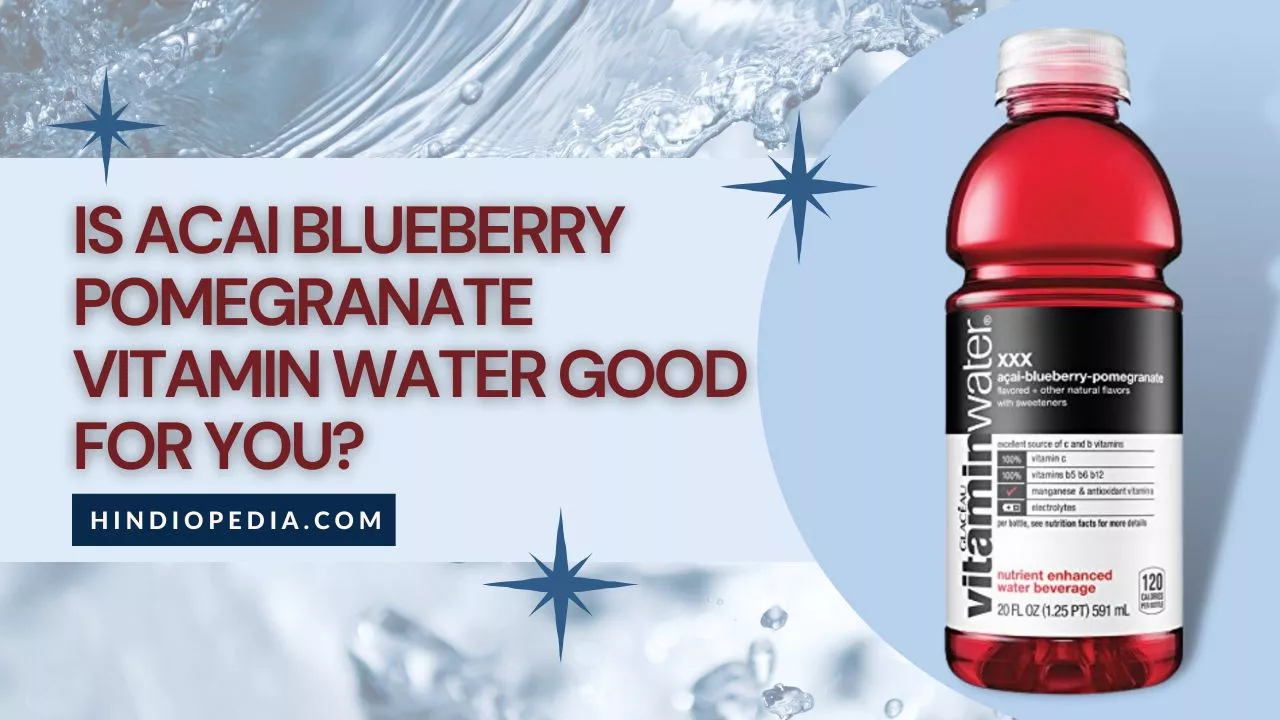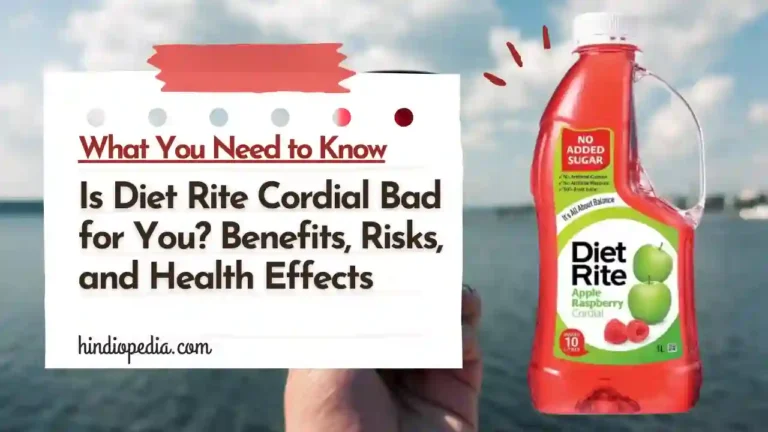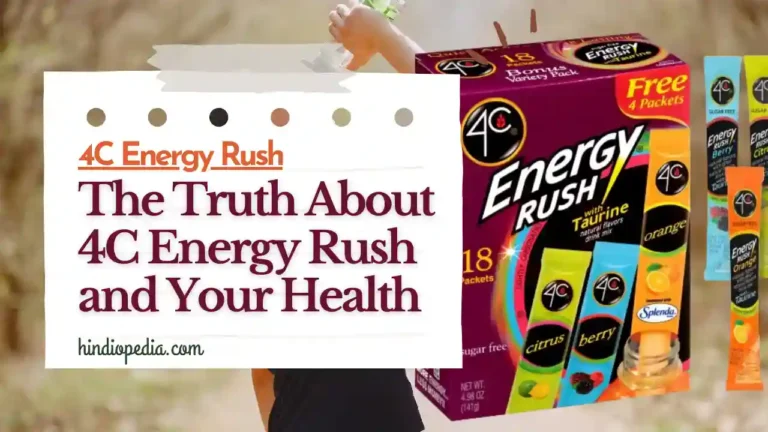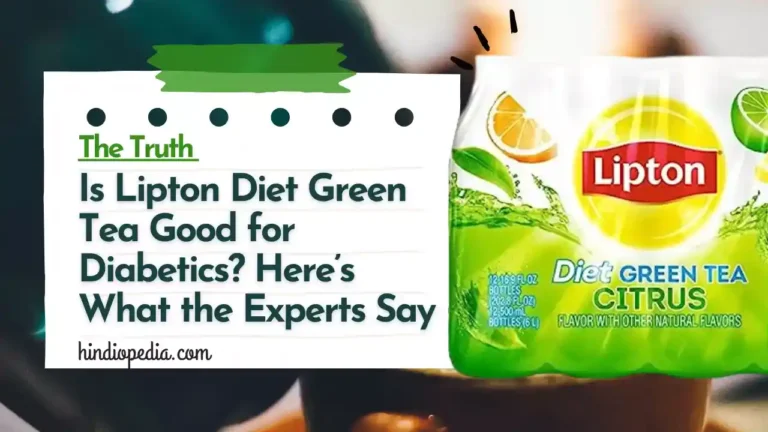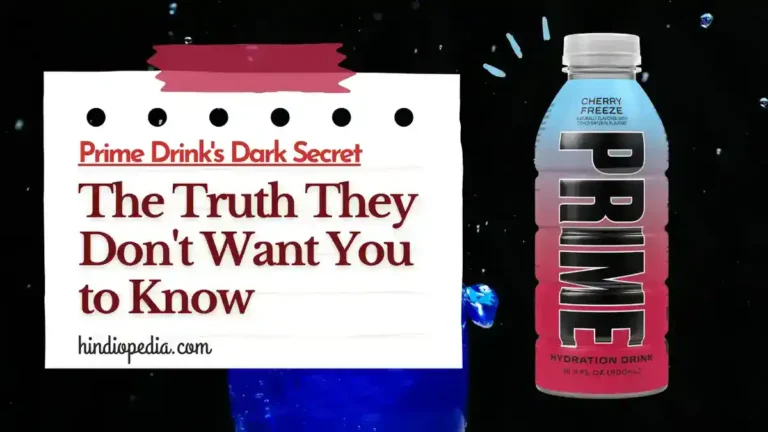Is Acai Blueberry Pomegranate Vitamin Water Good For You? Nutrition Analysis
Acai Blueberry Pomegranate Vitamin Water provides hydration and vitamins but contains high sugar and calories. It offers some benefits from added nutrients but lacks the fiber and full nutritional profile of whole fruits. The drink may be better than sodas but isn’t as healthy as water or whole fruits. Moderation is key when consuming this beverage.
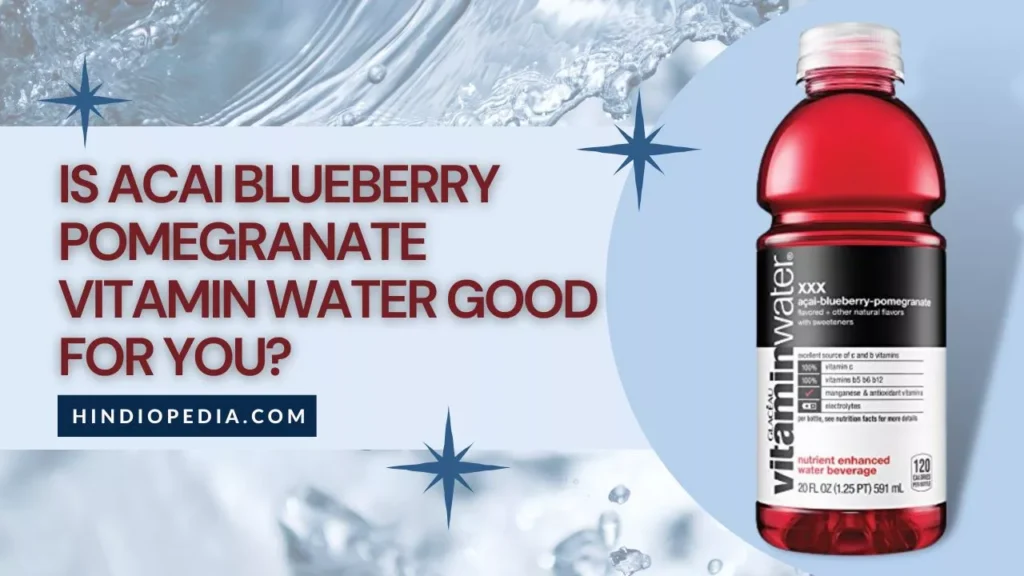
Vitamin water has become a popular beverage choice for many people. One flavor that stands out is Acai Blueberry Pomegranate. This article will examine whether this drink is truly beneficial for your health.
What is Acai Blueberry Pomegranate Vitamin Water?
Acai Blueberry Pomegranate Vitamin Water is a flavored beverage. It’s made by the Glaceau company, which is owned by Coca-Cola. The drink contains water, added vitamins, and natural flavors. It’s marketed as a healthier alternative to regular sodas and sugary drinks.
Ingredients
The main ingredients in this vitamin water are:
- Reverse osmosis water
- Crystalline fructose
- Cane sugar
- Less than 0.5% of: citric acid, vitamin C, magnesium lactate, calcium lactate, fruit and vegetable juice, natural flavors, vitamin B3, vitamin B6, vitamin B12, vitamin B5
Nutritional Information
Here’s a breakdown of the nutritional content per 20 fl oz bottle:
| Nutrient | Amount |
|---|---|
| Calories | 120 |
| Total Fat | 0g |
| Sodium | 0mg |
| Carbs | 32g |
| Sugars | 31g |
| Protein | 0g |
The drink also contains various vitamins and minerals:
- Vitamin B3 (Niacin): 100% of Daily Value (DV)
- Vitamin B6: 100% DV
- Vitamin B12: 100% DV
- Vitamin B5 (Pantothenic Acid): 100% DV
- Vitamin C: 100% DV
- Magnesium: 10% DV
- Zinc: 10% DV
Potential Benefits
1. Hydration
The main ingredient in this vitamin water is water. Staying hydrated is crucial for bodily functions. Water helps regulate body temperature, transport nutrients, and remove waste products.
2. Vitamin and Mineral Content
This drink provides 100% of the daily value for several B vitamins and vitamin C. These nutrients play important roles in the body:
- B vitamins help convert food into energy
- Vitamin C is an antioxidant that supports the immune system
- Magnesium and zinc contribute to numerous bodily functions
3. Antioxidants
Acai, blueberry, and pomegranate are known for their antioxidant properties. Antioxidants help protect cells from damage caused by free radicals. However, it’s unclear how much of these fruits’ benefits are present in the vitamin water.
Also, read Is Clear American Sparkling Water Bad for You?
Potential Drawbacks
1. Sugar Content
One major concern with this drink is its high sugar content. Each bottle contains 31 grams of sugar. The American Heart Association recommends limiting added sugars to no more than 25 grams per day for women and 36 grams for men.
2. Artificial Ingredients
While the drink contains some natural flavors, it also includes artificial sweeteners and preservatives. Some people prefer to avoid these additives.
3. Calorie Content
At 120 calories per bottle, this vitamin water adds a significant amount of calories to your diet. This could be a concern for people watching their calorie intake.
4. Overconsumption of Vitamins
While vitamins are essential for health, consuming too much can be harmful. The high vitamin content in this drink could lead to overconsumption if you’re already getting enough vitamins from your diet or supplements.
Comparison with Whole Fruits
While vitamin water contains flavors from acai, blueberry, and pomegranate, it doesn’t provide the same benefits as eating whole fruits. Whole fruits offer:
- Fiber
- A wider range of vitamins and minerals
- Natural sugars in smaller amounts
- Phytonutrients that may not be present in vitamin water
Research on Vitamin Waters
There’s limited research specifically on Acai Blueberry Pomegranate Vitamin Water. However, studies on vitamin-enhanced waters in general have raised some concerns:
A study published in the journal “Nutrients” found that many vitamin waters contain high amounts of sugar, which can contribute to obesity and tooth decay.
Another study in the “American Journal of Clinical Nutrition” suggested that fortified beverages may not be as effective at delivering nutrients as whole foods.
Important Things to Consider
1. Environmental Impact
The production and distribution of bottled beverages, including vitamin water, have environmental consequences. This includes plastic waste and the carbon footprint of transportation.
2. Marketing Claims
The marketing of vitamin water often implies health benefits that may not be scientifically proven. It’s important to critically evaluate these claims.
3. Cost Comparison
Vitamin water is often more expensive than regular water or homemade fruit-infused water. This cost difference can add up over time.
4. Dental Health
The acidity in vitamin water can potentially erode tooth enamel, especially if consumed frequently.
5. Regulation
The regulation of vitamin-enhanced beverages varies by country. In some places, they’re regulated as food, while in others, they’re considered dietary supplements.
Alternatives to Vitamin Water
If you’re looking for healthier alternatives, consider:
- Plain water
- Unsweetened tea
- Homemade fruit-infused water
- Eating whole fruits and vegetables
The Bottom Line
Acai Blueberry Pomegranate Vitamin Water does provide hydration and certain vitamins. However, it also contains a significant amount of sugar and calories. While it may be a better choice than sugary sodas, it’s not as healthy as water or whole fruits.
The best approach to nutrition is usually to get vitamins and minerals from a balanced diet of whole foods. If you choose to drink vitamin water, it’s important to do so in moderation and be aware of its sugar content.
References:
- Popkin, B. M., et al. (2010). Water, Hydration and Health. Nutrition Reviews.
- Malik, V. S., et al. (2010). Sugar-Sweetened Beverages and Risk of Metabolic Syndrome and Type 2 Diabetes. Diabetes Care.
- Martínez-Augustin, O., et al. (2015). Vitamin Water: Hype or Health? Nutrients.
- Dietary Guidelines for Americans 2020-2025. U.S. Department of Health and Human Services and U.S. Department of Agriculture.
- Boeing, H., et al. (2012). Critical review: vegetables and fruit in the prevention of chronic diseases. European Journal of Nutrition.

